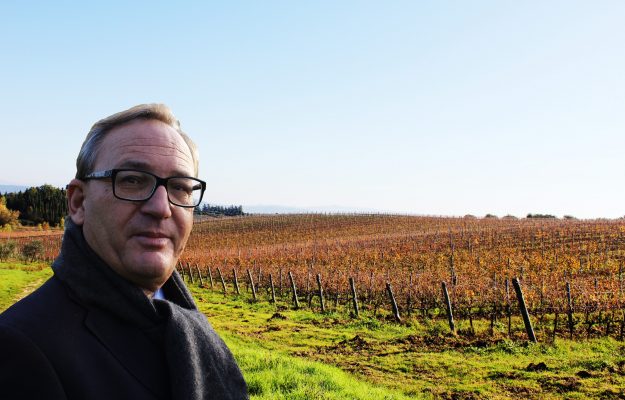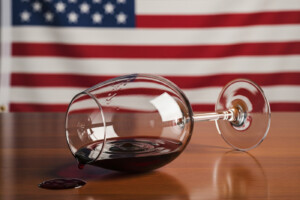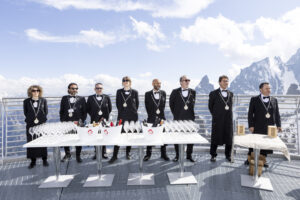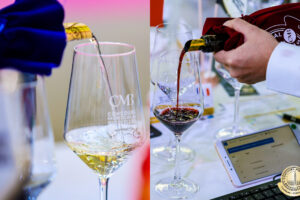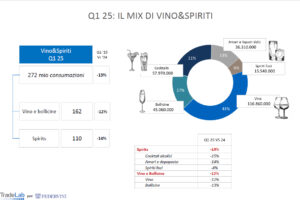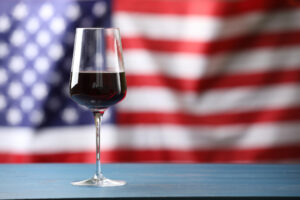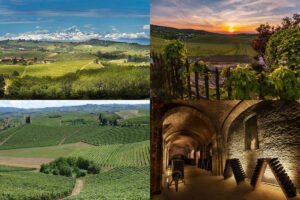Italy, with the necessary precautions, many doubts and the inevitable controversies, reopens restaurants and bars, as well as Portugal, where the pandemic has had less devastating effects, while the rest of Mediterranean Europe is moving differently: France is still waiting, Spain restarts on May 25, except for the Comunidad de Madrid and the metropolitan area of Barcelona. The lockdown ends, at least formally, but we cannot yet speak of a return to normality, neither in habits nor, presumably, in consumption, which, in these two months of confinement, have experienced different dynamics than usual, as recounted in the survey “Consumption of Wine in Europe - Before and during quarantine”, carried out by the European Association of Wine Economists led by Jean-Marie Cardebat of the Université de Bordeaux, with the four countries around which the world of wine revolves, in productive, cultural and economic terms: Portugal, Spain, France, and Italy, where the study was signed by Professors Luca Rossetto of the University of Padua, Giulio Malorgio of the University of Bologna and Davide Gaeta of the University of Verona, also a winemaker in Valpolicella with the Eleva label, who commented on the results of the study at WineNews.
“The European Association of Wine Economists is an association of wine economists representing universities in eight countries (Spain, Belgium, Italy, France, Austria, Germany, Portugal, and Switzerland) - explains Professor Gaeta - that investigates and observes behavior and market. It is an independent, university-based observatory whose objective is to provide companies with an objective analysis, with great methodological rigor. The statistical sample of this survey, which will be presented with Foragri, in mid-June, in a webinar that will discuss wine and credit companies, is of considerable size (over 9,000 surveyed) and the prevalence of interviewees (40-60 years) in the most relevant segment of consumers, with a slight male prevalence and a satisfactory economic income”.
Among the most interesting evidence found by Professor Gaeta and colleagues Luca Rossetto of the University of Padua, Giulio Malorgio of the University of Bologna, “is that during the lockdown the interviewee said he drank wine more often than before, but it is especially true among couples without children, while the presence of children acted as a restrainer on the frequency of consumption. The second consideration is that the majority of interviewees, more than half, continued to buy wine in traditional shops: supermarkets or grocery stores. However, as far as online purchases are concerned, there are no significant increases. What is new is that 45% of those who bought are new customers, consumers who had never bought wine online before. What is new is not in the percentage value of consumption or the increase in consumption but the news of the customer”.
There is another interesting aspect, “perhaps the most important of the data - underlines Professor Gaeta - is that most of the interviewees have drawn from their cellar stocks, considering it important to have accumulated wine in unsuspicious times. These are wine lovers, who do not leave much to chance, who have carefully chosen what to drink in combination with food, and this also means that there is free space, to be filled, with wine lovers who will come back to buy. Finally, 44% said that the experience of social aperitifs, therefore at a distance, is a habit that they would like to continue, moving a well established social habit to another place”.
Looking at the rest of Europe , “France - Gaeta resumes - shows a more pronounced tendency to consume wine than Spain and Italy, and it is also true that wine has done much better than beer and spirits, and this marks a certain countertrend, also because the consumption of the other two categories has also dropped in price. Finally - concludes Professor Gaeta - an international consideration: the digital aperitif, I repeat, has found enormous feedback, especially among young people, who say they want to continue it, especially in France, more than in any other country”.
Focus - WineNews Analysis
Analyzing the part that deals with the trend of consumption in Italy during the lockdown, and focusing on wine consumption, 44.05% of people interviewed said they drank exactly as often as before, 23.41% drank less frequently, and 32.09% drank more often. Very different indications come from those concerning beer consumption (only 17.3% drink more frequently, 28.38% less frequently) and spirits (9.37% drink more frequently, 36.62% less frequently). Another interesting aspect is that the bottle of wine, once purchased, is opened within a week or two in 30.70% of cases, within 2-3 days in 26.42% of cases and the same day in 12.28% of cases, while 15.72% is stored.
During the lockdown, the place of purchase also changes, with some surprises: 47.91% of consumers bought it at the supermarket (they were 51.26% before the lockdown), 6.23% in grocery stores (from 6.33%), 22.14% do not buy it, take it from their cellar (from 9.30%), 10.51% in a wine shop (from 45.67%), 15.44% online (from 12.19%), 14.14% directly from the producer (from 47.44%). Online is the channel that surprises the most, because even today 80.81% of consumers still do not use it as a purchasing channel, while 5.36% are among new users, with 8% who have not bought more wine than usual, and just 5.83% of consumers who say they have bought more wine online.
What is growing, importantly, and worryingly, is the slice of those who have not bought wine, which has gone from 2 to 24%. In terms of price, 15% of the bottles settled below 5 euros (it was 14% before the lockdown), 33% between 5 and 10 euros (from 41%), 23% between 11 and 20 euros (from 33%), 4% between 21 and 30 euros (from 7%) and 1% more than 30 euros (from 3% of the pre-lockdown period). Overall, 26.45% of consumers spent more than before on wine purchases: again, this was higher than for beer (16.79%) and spirits (7.46%). Among the reasons that lead to the choice of wine, even in lockdown, pleasure in terms of taste (72.9%), pairing with food (68.19%), and, despite everything, socialization (34.4%).
It is with family members that people drink wine most often (77.9%), or alone (26.6%), less frequently, on the video call, with friends (7.63%) and colleagues (2.8%). 48.56% of consumers enjoy a digital toast once a week, 15.35% every day, 16.56% rarely, and 19.53% never, and overall 43.72% of respondents will continue to do so even after lockdown. 70% of consumers agree with the idea of buying local wine to support the national economy. Besides, 20% of consumers increased their knowledge of wine through the study of online content.
Copyright © 2000/2025
Contatti: info@winenews.it
Seguici anche su Twitter: @WineNewsIt
Seguici anche su Facebook: @winenewsit
Questo articolo è tratto dall'archivio di WineNews - Tutti i diritti riservati - Copyright © 2000/2025










